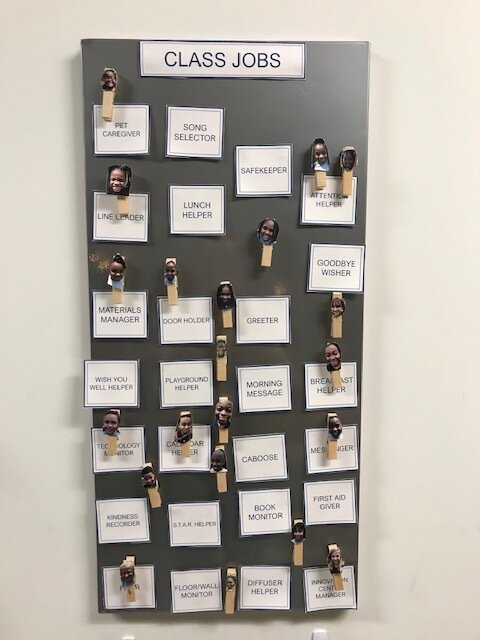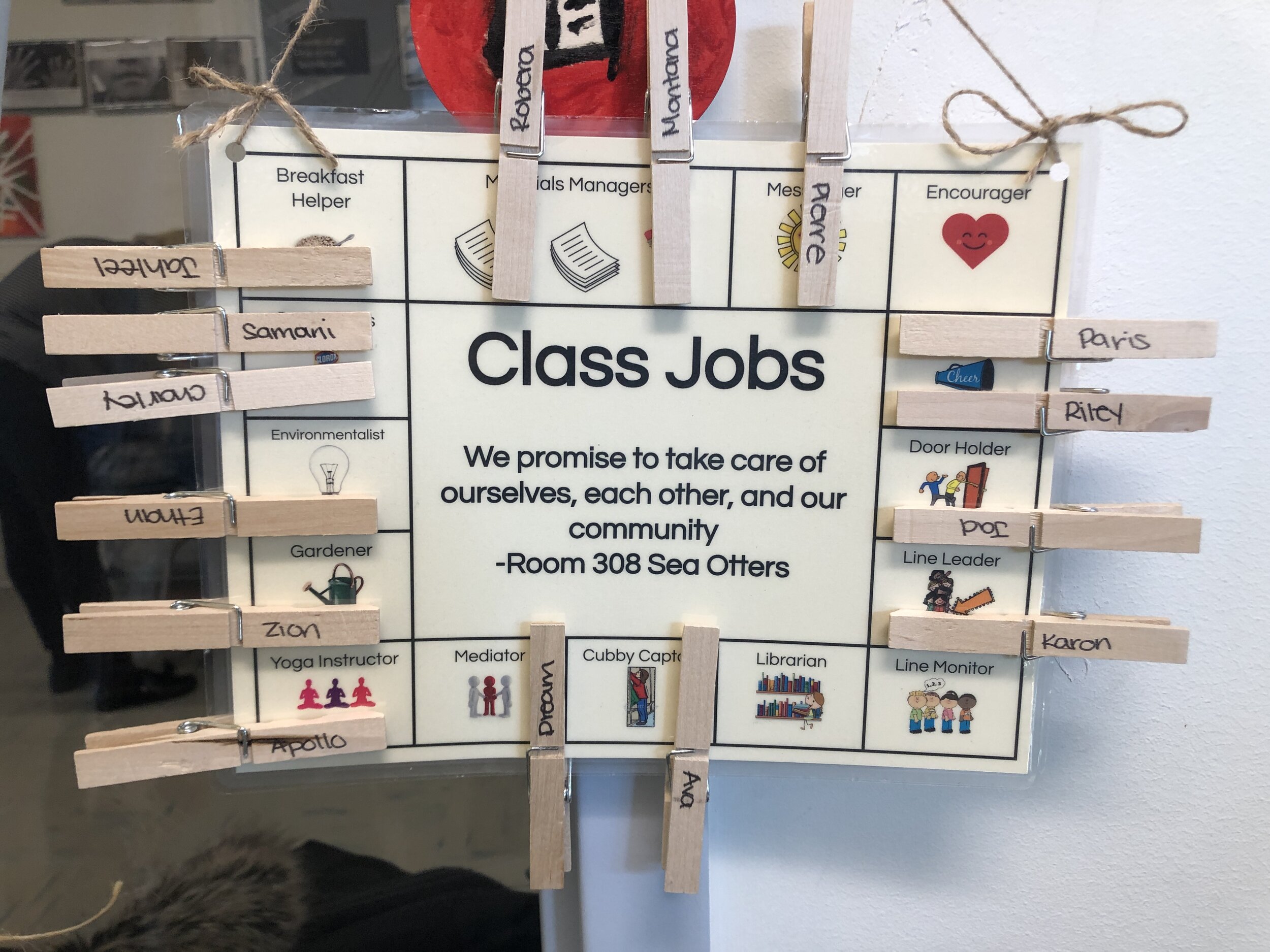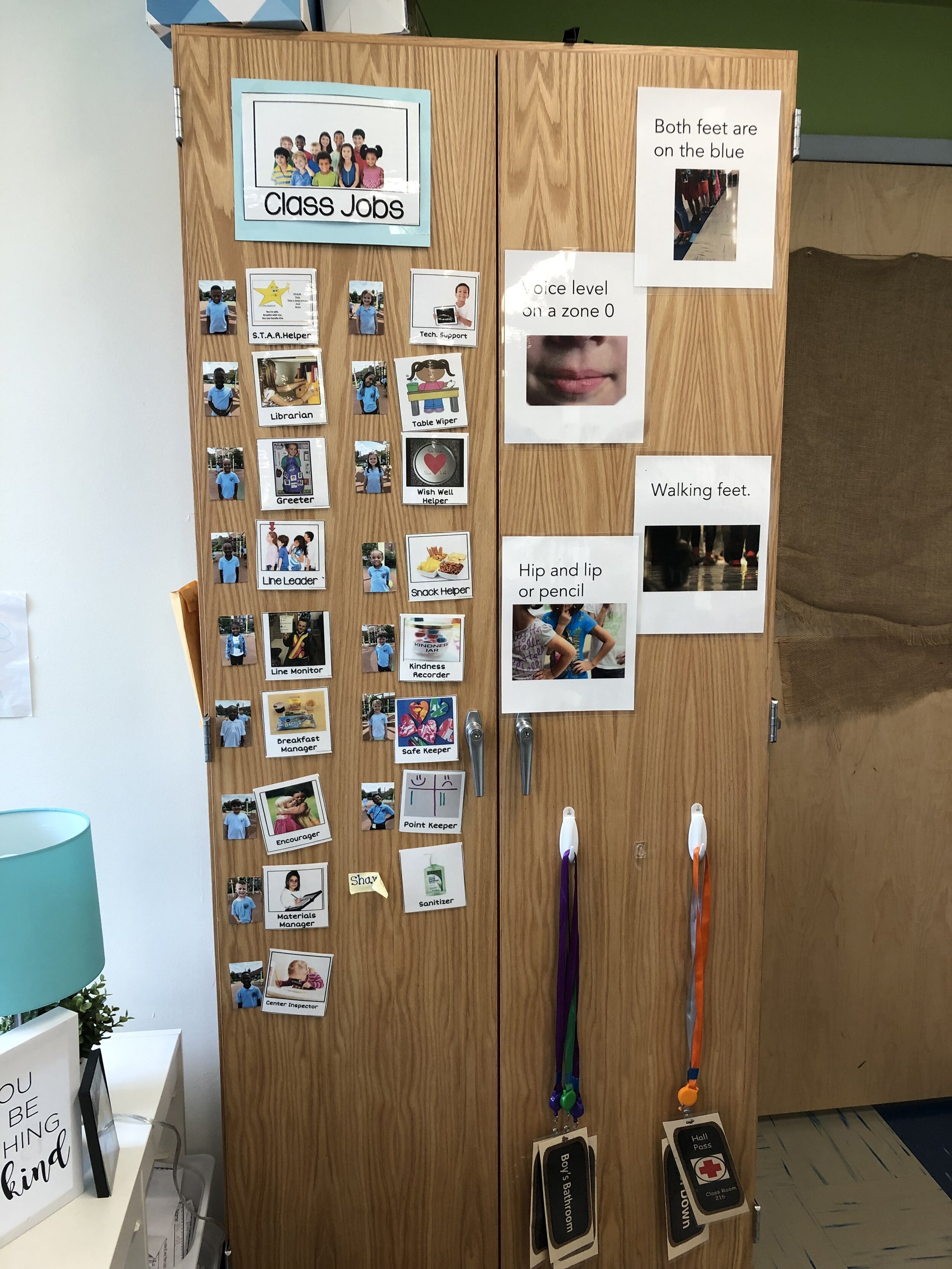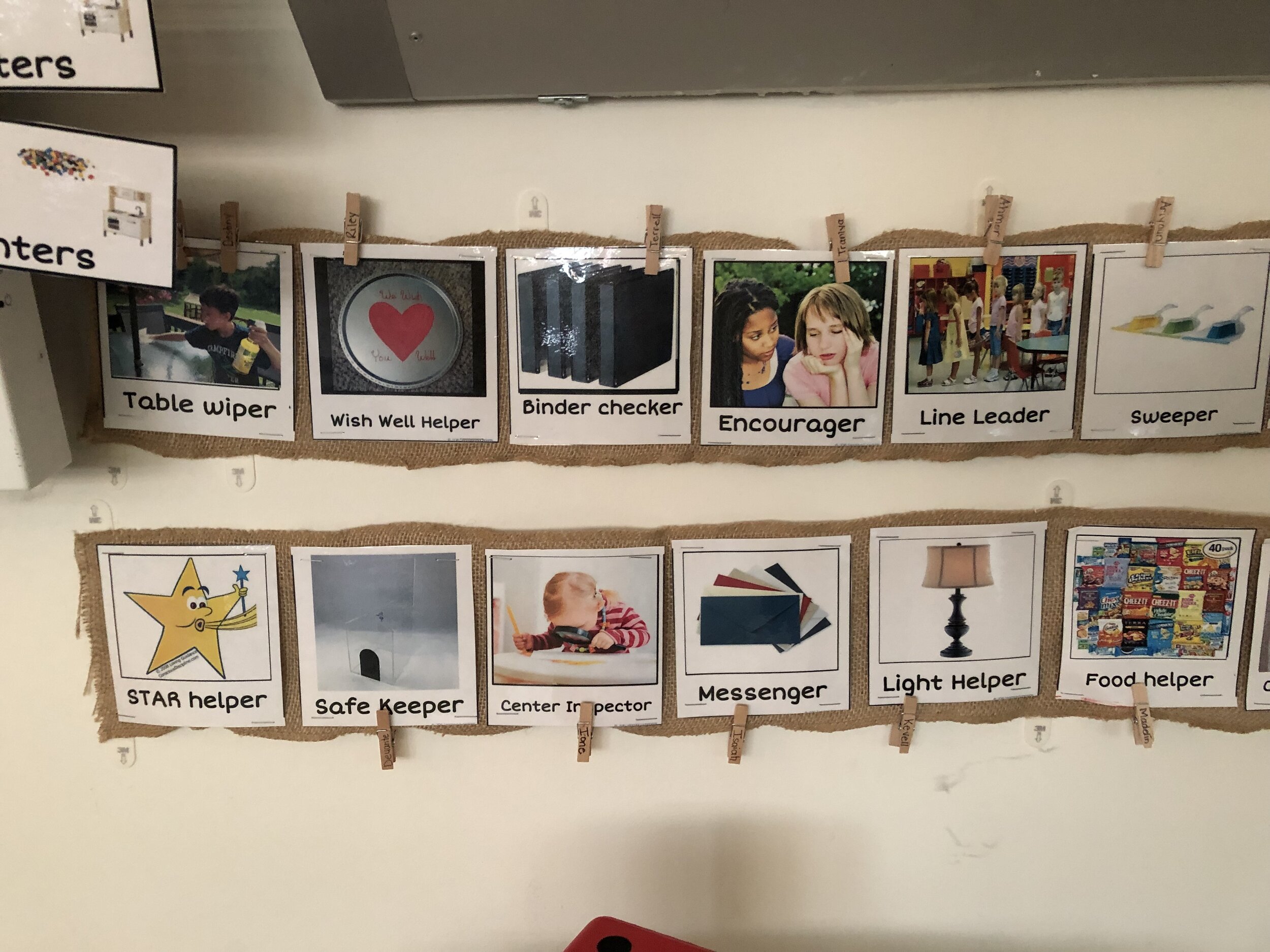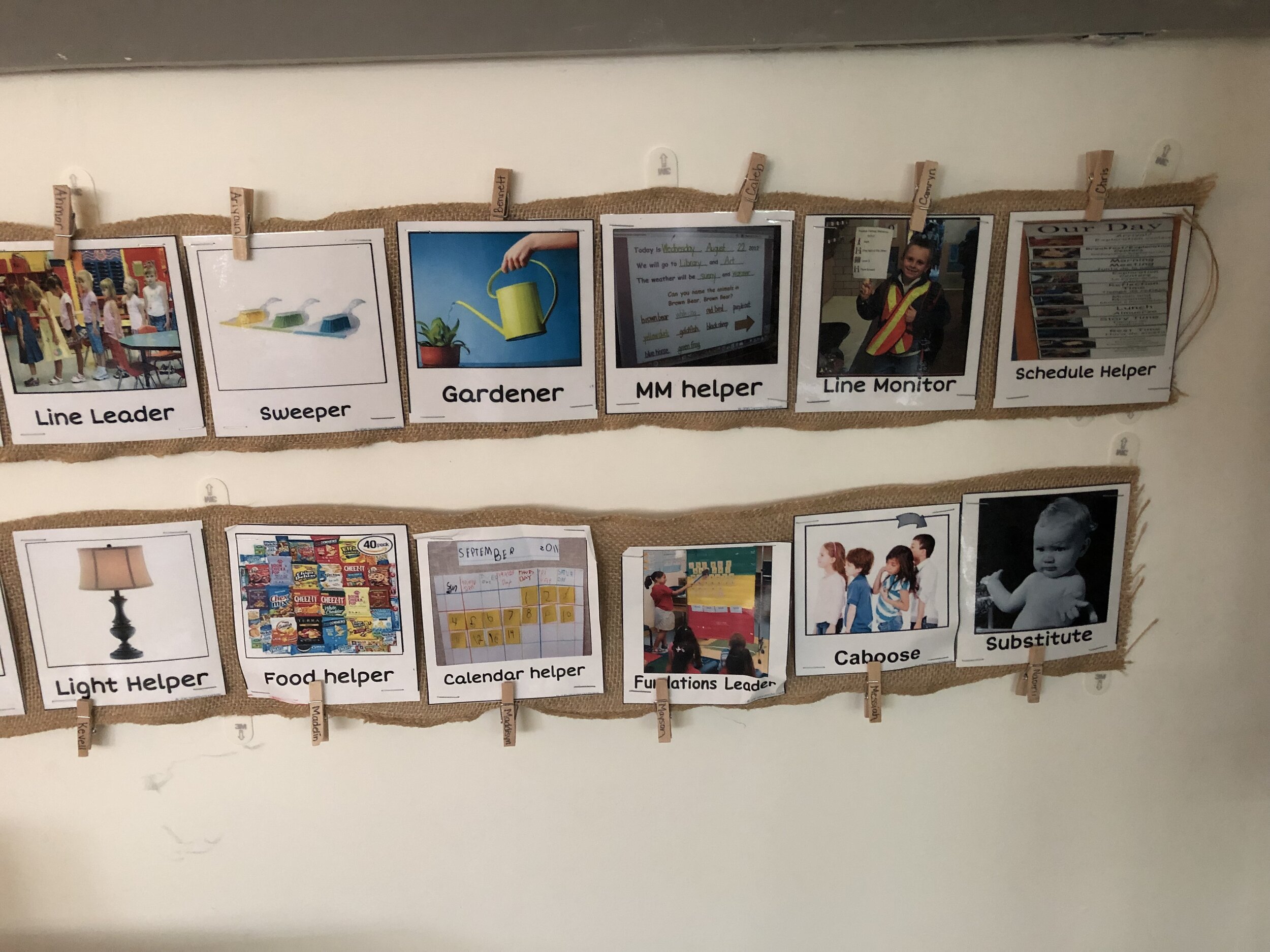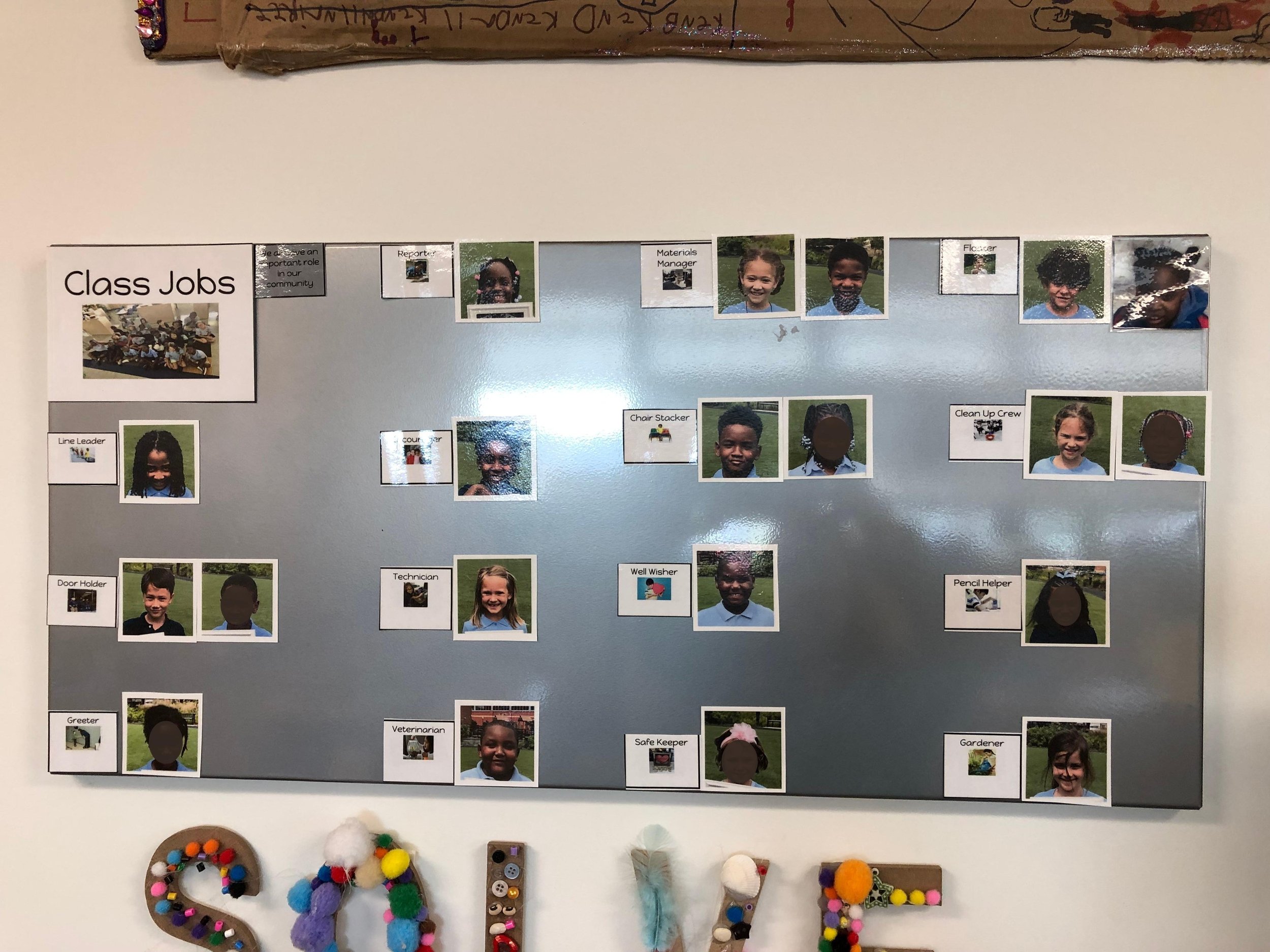Classroom Jobs
Every student has a meaningful job where they are responsible for the wellbeing of an aspect of the classroom community. Jobs are never determined by merit or used as rewards or punishment.
Why does this matter?
Jobs fuel self-worth and community. When students successfully contribute to the class through their job, they build a sense of self worth (that they matter and that the class needs them) and of interdependence (that we all bring unique gifts and rely on each other).
Jobs give practice with important skills. For example, children practice writing when they are the class Kindness Recorder.
Jobs give students ownership over the class, increase efficiency, and reduce teacher workload.
Plan Classroom Jobs
Get started by planning for jobs in your classroom:
Make a list of jobs. List the necessary chores, routines, and rituals that keep your classroom running smoothly. Consider which of these you are willing to delegate to children. Identify enough jobs for each child to have at least one job.
Write job descriptions for each job and create props if needed. Job descriptions should include all necessary steps to perform the job in student-friendly language. Providing props can make a job more tangible and fun for students.
Create a job board to visually represent the jobs and the children who will do them.
You may vary the jobs throughout the year to meet the changing needs of the classroom. Check out our Virtual and Physically Distanced Jobs, too.
Teach Classroom Jobs
Teach jobs to students through a variety of methods:
Modeling & demonstration
Touring the school
Class-made books
Songs
Books
As you rotate jobs over the course of the year, each student teaches their current job to the incoming student. Rotate jobs at a comfortable interval depending on the age and skills of your students. Assign jobs to children based on what they need more practice with - not based on what they are already good at.
Support Students with their Jobs
Support children as they do their jobs. A job done incorrectly is an opportunity for coaching, not punishment.
Provide descriptive praise to children as they successfully complete their jobs:
“You did it! You cleaned the tables with the wipes until all the crumbs and spills were gone. You used circular motions to collect all of the crumbs. That is helpful to our school family so that our work will not get food on it.”
Coach children who need more support completing their jobs:
Provide detailed verbal directions: “You almost did it! The fish needs two shakes of food so he is not hungry. Give him one more shake.”
Show pictures of the desired outcome
Demonstrate the desired way to complete the job
Reflect (and have students reflect) on accomplishments relative to the goal




